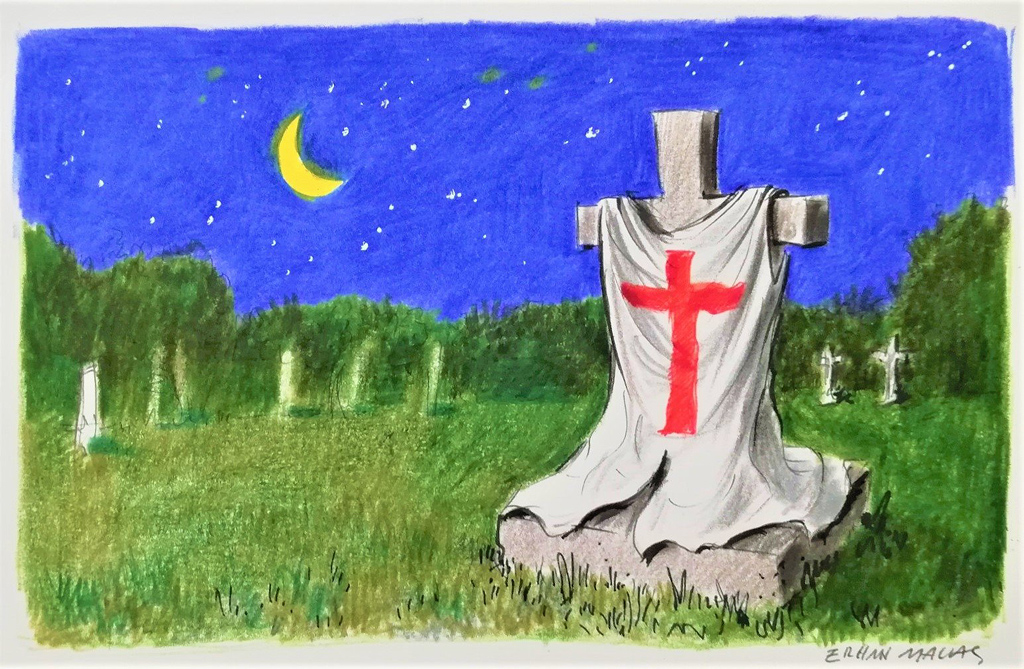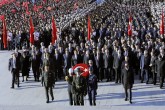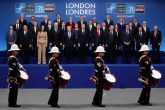In this piece, I will attempt to answer the question that I asked in last week’s column, in which I tried to assess the French approach toward Turkey. I will elaborate on the general view of the Western countries toward Turkey by answering the following questions: Why has the West been otherizing and alienating Turkey? What are the main sources of anti-Turkish sentiments in the West? Why is the West concerned about the democratic institutions in Muslim countries? Is the rise of Turkophobia related to the most recent wave of Islamophobia? Why is the West against the Justice and Development Party (AK Party) government? Are they worried about the rise of the Turkish state?
First of all, Western perception of Turkey took a dramatic turn a decade ago, following the Arab insurgencies and revolutions that sought democracy and self-rule. A wave of change and democratization began to sweep through the region. However, the Western countries with some post-status quo states and regimes reversed the process and transformed the Arab Spring into an Arab Winter with the military coup in Egypt in 2013.
In retaliation against the new regional realities, Western countries have been following a containment policy toward Turkey since then. This policy is implemented on the ground in the Middle East and in the sea in the Eastern Mediterranean. Western countries have been trying to isolate Turkey, forcing it to give up all its claims in the region.
Second, since the rupture of the Arab insurgencies in 2011, Western countries have declined most of the Turkish demands to take measures against the threats and challenges emanating from the region. For instance, Western countries have dismantled their air defense systems deployed in Turkey. They transferred these defense systems to some other NATO members in Eastern Europe.
Then, Turkey attempted to buy air defense systems from its Western allies; however, they declined to even sell them to Turkey. Determined to have air defense systems, Turkey first tried to buy them form China, but the West dissuaded them from striking a deal. At last, Turkey had to reach an agreement with Russia and bought S-400 air defense systems, which further irritated the West.
Third, Western countries have been unhappy with Turkey’s emphasis on the nationalization of Turkish foreign, security and economic policies. In other words, Turkey is determined to move from the periphery to the center of world politics by following an independent domestic and foreign policy.
For Turkey, the main prerequisite of following an independent foreign policy is the redefinition of bilateral relations between Turkey and the West, as Ankara wants to change its relations with the West from a hegemonic and dependent relationship into an equal and interdependent relationship. However, Western countries and states that are already at the center do not want any further expansion of the center. That is, they want the countries leading world politics to remain limited; therefore, they do not want to change the basis of their relations with Turkey. On the contrary, they want Turkey to remain dependent on the West.
Fourth, Western countries do not want Turkey to be seen as a model for other countries who also want to move from the periphery to the center and seek greater autonomy in their foreign policy. If other states begin to follow in the footsteps of Turkey, Western countries may lose their control over the whole region. Therefore, Western countries are determined to foil Turkey’s attempts.
The West also provides diplomatic, political, military, technological, economic and financial support to certain regimes such as the United Arab Emirates (UAE), Saudi Arabia and Egypt in order to prevent the regional regimes from pursuing independent foreign policies and to keep them dependent on Western powers.
Fifth, the West is adamant in continuing its traditional colonialist policy, which requires the exploitation of regional natural resources. However, two different processes are working against this exploitation: one from the regional dynamics and the other one from other global powers. With the Arab insurgencies, Arabs with increased political awareness are demanding to exercise their right to self-determination.
The quest of Arab peoples for self-rule and their insistence on the use of their national resources for their own well-being were crushed by the despotic regimes of the region supported by the West. Furthermore, non-Western countries such as Russia and more importantly China began to demand these resources.
All in all, Western countries insist on otherizing and alienating Turkey, which continues to consider itself as part of Western politics and aspires to become the most democratic country in the Middle East. It is clear that Western countries have not been supporting democratic countries but nondemocratic actors and regimes in the Middle East. The rise of ultranationalist, far-rightist and neofascist actors that dominate most Western countries consider Muslim populations and Muslims countries as the main enemy of the West.
Therefore, the current Western governments intend to punish Turkey, which is seen as the leader of the Muslim world. That is, Turkophobia is associated with Islamophobia due to the actions of Western countries.
In conclusion, it seems that the Western anti-Turkish and anti-Arab policy will continue for a while. Western countries will continue to invest in actors in the Middle East such as Abu Dhabi Crown Prince Mohammed bin Zayed, Saudi Arabian Crown Prince Mohammed bin Salman, Libya’s putschist Gen. Khalifa Haftar and Egyptian President Abdel-Fattah el-Sissi to advance their own interests, which means regional chaos and political instability is likely to continue for a while.
[Daily Sabah, 16 September 2020]
In this article
- Opinion
- Anti-Turkish Sentiment | Anti-Turkism | Turkophobia | Turkish Fear
- Arab Spring
- Crown Prince of the Emirate of Abu Dhabi
- Daily Sabah
- Eastern Mediterranean
- Europe
- Global Actors | Local Actors
- Global Power
- Islamophobia
- Middle East
- Mohammed bin Salman (MBS)
- Mohammed bin Zayed Al Nahyan (MBZ)
- NATO
- Russia
- Turkish Foreign Policy
- Türkiye
- Türkiye's Foreign Policy
- Türkiye's Justice and Development Party | AK Party (AK Parti)
- United Arab Emirates (UAE)
- Western Countries
- Western World



